It’s 2010 and you have finally bought yourself that shiny new 3/4-ton diesel-powered monster that you have wanted since you can remember. You couldn’t be happier. Skip ahead ten years, and your faithful friend is starting to show its age. The Dodge exhaust is rattling, the Chevy’s transmission is having trouble shifting, and the Ford bed is rusting onto the road (in Pennsylvania, at least). However, one thing that all these trucks will have in common at some point in their lifespan is emissions system issues.
Good maintenance is always the best practice for any vehicle. Since 2010 the EPA has tightened its grip on the diesel industry by requiring DEF (Diesel Exhaust Fluid) to be installed on most diesel-based cars and trucks. It has since become essential to think about the long game when thinking about emissions systems. Here at Pittsburgh Power we have partnered with DPF Alternatives to alleviate some of our customer’s emissions-based worries. DPF Alternatives is a franchise that offers a unique filter cleaning service that has the potential to save any diesel engine owner thousands of dollars.
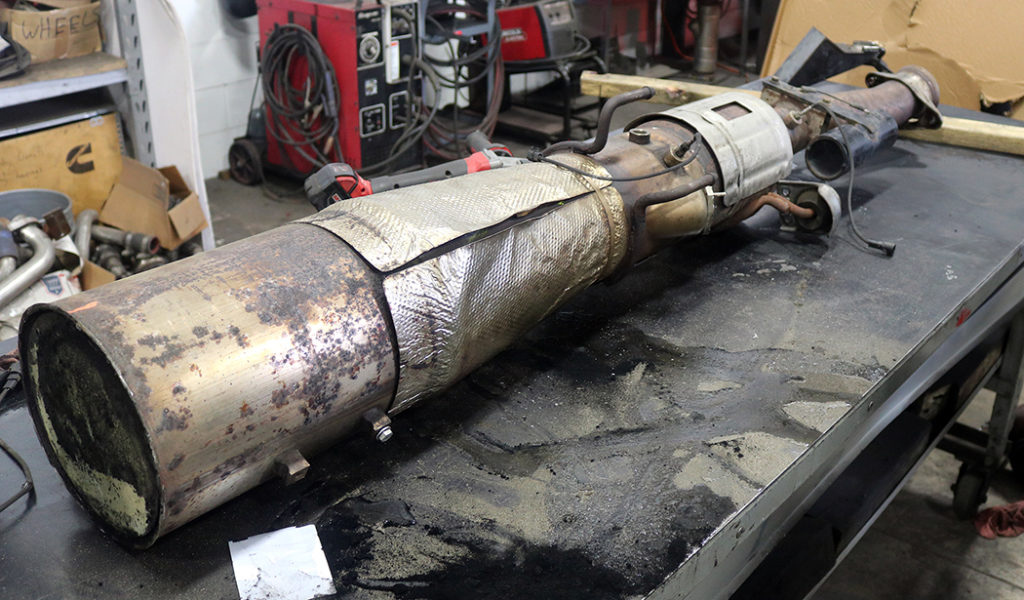
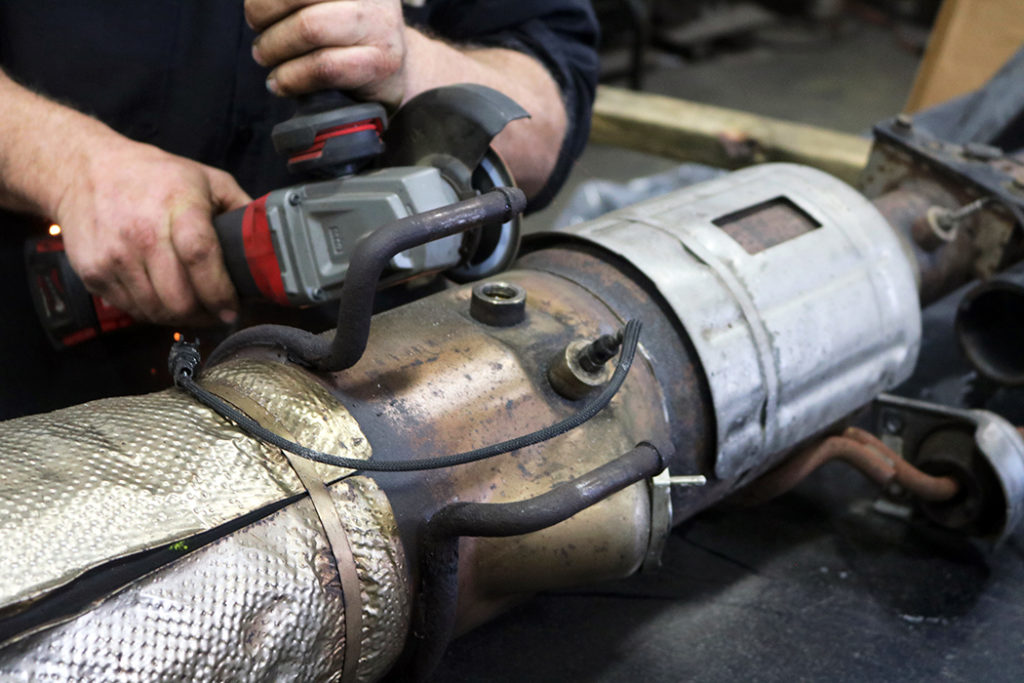
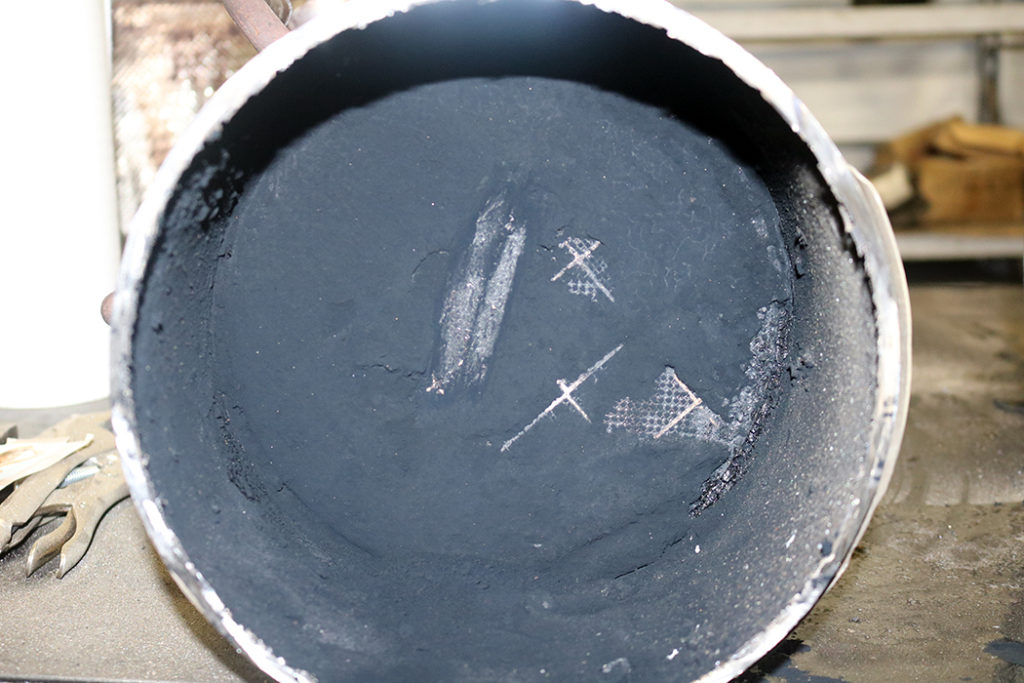
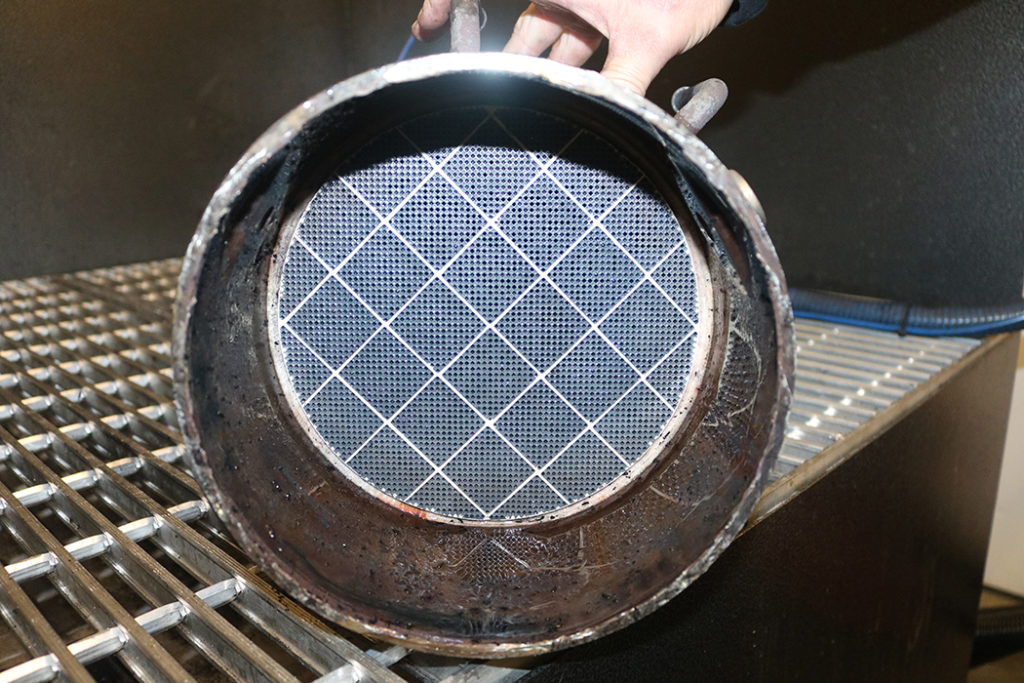
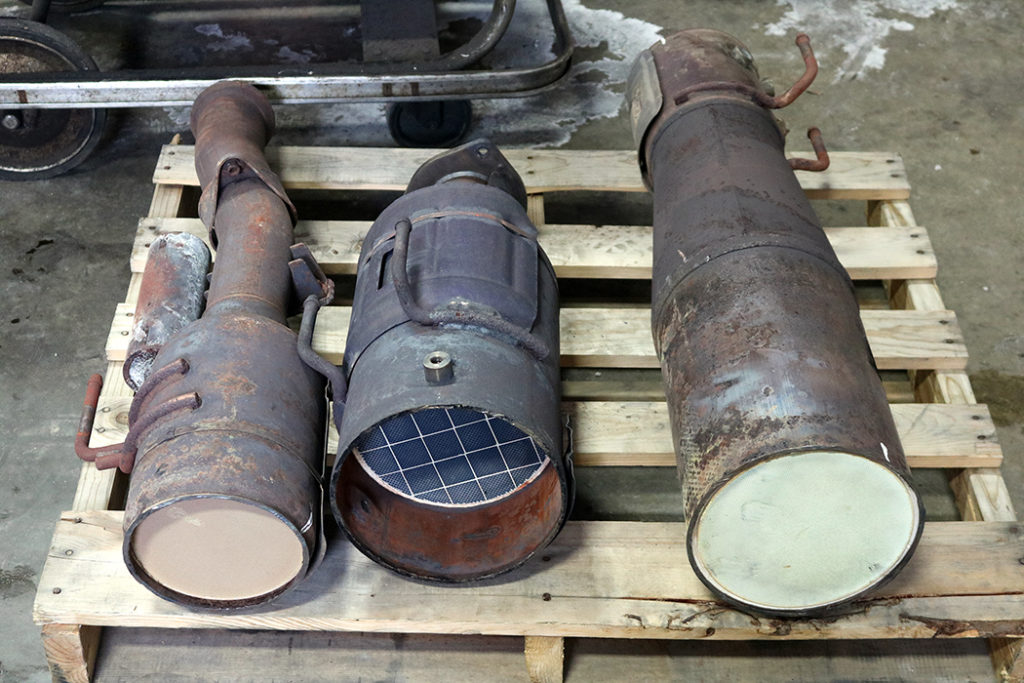
This last week, our staff has had the opportunity to step out of their wheelhouse and work on something we thought was impossible to service until recently – a Ford F-250 with SCR (Selective Catalyst Reduction). In this case, complete removal of the exhaust system was required, as the filters were welded together. The initial issue that brought this truck into the shop was emissions codes, and when we cut it open and inspected the system, it was not hard to see why. With the DPF (Diesel Particulate Filter) being heavily blocked by ash, this customer’s codes were triggered by high exhaust temps, high NOx (Nitrogen Oxide) readings, and almost nonexistent flow.
With the four-stage cleaning system at our disposal, we can test the flow of each filter and establish a baseline to reference. Once we know that number, we use a combination of techniques that range from high pressured air, water flushing, kiln baking, and a proprietary method developed by DPF Alternatives that uses ultrasonics. Every technique used has a specific way of breaking down the ash particles in your filters. Once completed, assuming no pre-existing catastrophic failure points existed, filters have the potential to regain up to 90% of their original OEM flow rate.
In this customer’s case, the flow rate of his filter was so blocked that an initial measurement could not be taken. This, in part, was the result of a prior dealer trying to clean the filters with pressure washing. It cannot be stressed enough how bad of a practice this is. The system is in line with the DPF filter, sitting at the rear, in this instance. When pressure washing in line, all you are doing is pushing soot from the DOC and SCR into an already plugged DPF. This, coupled with water saturation, creates a barrier that exhaust pressure can’t overcome.
Once the first cleaning steps were complete, the flow restriction reading was 8.8 in/hg (inches of mercury). This, as stated previously, is almost no flow through the exhaust system. By the end of the process, the filters flow rate was measured at 6.0 in/hg, and the OEM’s specification for a new filter is 5.0 to 5.5 in/hg.
Not only is this process effective at extending the life of your emissions system, but it is also cost-effective. This particular pickup truck’s complete emissions replacement package is at the higher end of five thousand dollars, not including labor, which means that the cleaning process has the potential to be one-fifth of that replacement cost. Considering that this process also works very well on Class 8 vehicles, the savings would climb even higher.
With shortages and unobtainable replacement parts, emissions systems included, we must help one another how and when we can. This service can and will help keep you on the road, be it in a Ford F-250 or a Class 8 Peterbilt. Now is the time to be diligent with your maintenance. If you suspect that you have issues or need to schedule regular maintenance, we at Pittsburgh Power urge you to do it sooner than later. Derates and breakdowns are something not many can recover from, and we need all the drivers on the road that we can get. Thanks to Jordan Greathouse for helping me with this month’s article. To schedule your service, call us today at (724) 360-4080.
